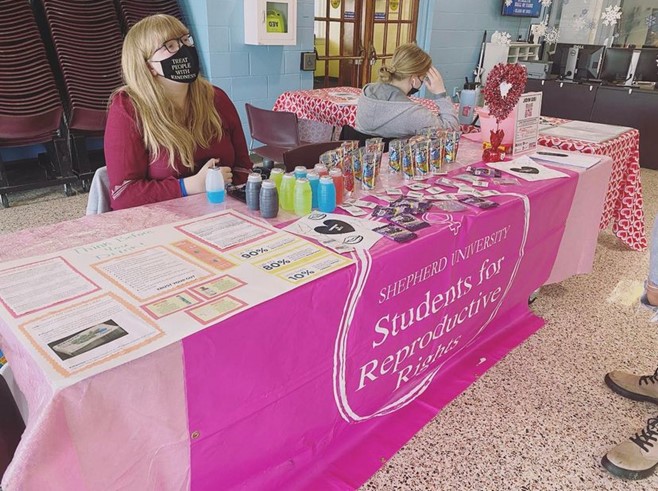The West Virginia House of Delegates passed the House Bill 4004 on Feb. 15, a bill that would ban access to abortion after 15 weeks of pregnancy in West Virginia.
With delegates voting 81-18 in favor of the legislation and only one member absent during the vote, the bill will go on to be considered by the state Senate.
As seen with West Virginia, many other states are making recent strides for restricting and limiting access to abortion, illustrating the topic’s pressing debate as a political and human rights issue.
Access to abortion in the first trimester and women’s right to privacy was established and made legal in 1973 through the U.S. Supreme Court’s decision in Roe vs. Wade. However, after almost 50 years of the case’s ruling, it may be overturned.
Dobbs v. Jackson Women’s Health Organization, a current pending U.S. Supreme Court case, could overrule Roe v. Wade and allow for the legality of abortion to be determined at the state level.
Dr. Stephanie Slocum-Schaffer (Dr. SASS), a professor at Shepherd University, teaches a course that focuses on the issue of abortion for one-third of the class’s semester. She provides insight on abortion’s pertinent standing in today’s political climate and what could happen if Roe vs. Wade is overturned.
“There is no longer a guarantee of women’s access to abortion and now it just goes back to being under state control. States, if they wish, can regulate or completely ban abortion then,” said Dr. SASS.
She details that there is a projection of 26 states that are expected to limit abortion to special circumstances or ban it altogether if the decision is pushed back to the states.
“It doesn’t mean that abortion becomes inaccessible everywhere. It just means that in some states, women will have differing levels of access to the abortion procedure and in other states, they really won’t,” noted Dr. SASS.
On Shepherd University’s campus, the Students for Reproductive Rights club (SFRR) focuses on topics of reproductive health and human rights issues.
With the Supreme Court ruling for Dobbs vs. Jackson Women’s Health Organization looming and West Virginia’s new House Bill being introduced in the Senate, they plan on making their voices heard.
Celine Wilson, president of SFRR, speaks on the pressing topic of abortion rights and its importance not only to the club, but for everyone that is affected by its access.
“When you ban abortion, it doesn’t just affect women. It affects specifically women of color, it affects women below the poverty line, it affects the LGBTQ+, anyone in rural areas because as you limit the resources, then people are going to have forced pregnancies and it can lead to all sorts of health issues,” said Wilson.
For groups like SFRR, they work to amplify the voices of those affected by reproductive health. The club gets involved in the community by hosting educational tabling events on campus and have participated in women’s marches in the local area.
Being a college club, she notes that it can feel difficult sometimes to feel that they have outreach. However, Wilson believes that with the organization, there is a domino effect with what they do.
“If you are able to get anyone who’s willing to learn and kind of take that information and go out in the world with it and do what they can, then you are having an impact, no matter how small,” said Wilson.
In terms of the future, Wilson wishes for the club to continue to fight for reproductive freedom and speak out on human rights issues after she graduates.
“We are not just a pro-abortion club; we are pro humanity club. We want everyone to have their fundamental rights and I hope the club will continue that,” said Wilson.

